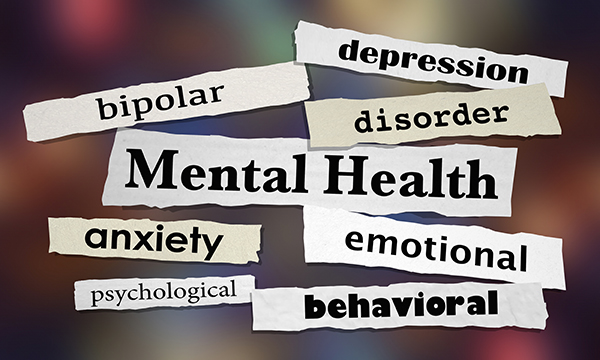CDC’s aggressive childhood vaccination schedule faces legal scrutiny
09/25/2025 / By Willow Tohi

- CDC faces a lawsuit over its childhood vaccination schedule, described as the world’s most aggressive.
- Plaintiffs argue that the CDC has never tested the combined effects of the 72+ doses administered.
- The lawsuit seeks to reclassify vaccines to “shared clinical decision-making” pending rigorous studies.
- Drs. Paul Thomas and Kenneth Stoller have had their licenses revoked for opposing CDC recommendations.
- The case is part of broader efforts to overhaul federal health agencies’ vaccine approaches.
The U.S. Centers for Disease Control and Prevention (CDC) is now facing a high-stakes legal dispute over its childhood vaccination schedule, which has been slammed as the most aggressive in the world. The lawsuit, filed on August 15 by a group of vaccine-skeptical doctors and the nonprofit Stand for Health Freedom, aims to dismantle what plaintiffs describe as a fundamentally flawed and potentially dangerous system.
A legal challenge to the CDC’s aggressive childhood vaccination schedule
The lawsuit, brought by Dr. Paul Thomas of Oregon and Dr. Kenneth Stoller of Montana, along with Stand for Health Freedom, argues that the CDC’s current childhood vaccination program is unconstitutional and scientifically inadequate. The plaintiffs claim the program’s aggressive 72-dose schedule from birth through age 18 has never been tested for cumulative safety. The doctors involved in the lawsuit say they lost their licenses for opposing the CDC’s recommendations, a claim that has fueled their resolve to challenge the status quo.
Since taking office, U.S. Department of Health and Human Services Secretary Robert F. Kennedy Jr.—a vocal skeptic of vaccines—has moved aggressively to overhaul federal health agencies’ approaches to vaccinations. His actions include funding cuts for immunization projects and changes to Covid-19 vaccine recommendations for pregnant women and healthy children. Kennedy has also revived a decades-old Task Force on Safer Childhood Vaccines, disbanded in the 1990s, and moved to increase oversight of vaccine safety.
The case for change: No cumulative safety studies
The lawsuit seeks to reclassify nearly all vaccines in the CDC’s recommended schedule to “Category B: Shared Clinical Decision-Making,” a move that would give doctors and parents a greater say in choosing which vaccines are appropriate for each child. The plaintiffs argue that the CDC has failed to conduct comprehensive, rigorous scientific studies to establish the cumulative safety of administering 72 or more vaccinations throughout childhood.
Plaintiffs point to a 2013 report by the Institute of Medicine (now the National Academy of Medicine), which noted that while individual vaccines are likely safe, few studies have examined the safety of the entire schedule. The report rejected the idea of conducting randomized controlled trials to compare the CDC’s schedule with alternative or unvaccinated schedules, citing ethical concerns given the absence of evidence that the current schedule is safe.
Behind the suits: Shades of broader policy changes
Both Thomas and Stoller say their medical licenses were revoked, in part, for resisting the CDC’s recommendations. Oregon’s medical board suspended Thomas’s license for promoting an alternative vaccination schedule believed to have links to preventing autism and other developmental disorders. Montana’s medical board found Stoller’s license-based exemptions for children’s vaccines to be “baseless.”
The case also references a legal challenge in a Nevada federal court, which argues that the lack of use of the Task Force on Safer Childhood Vaccines violated HHS’s statutory duty. Over nearly three decades, the number of vaccine doses on the CDC’s schedule has tripled from 24 to over 72, while autism rates have skyrocketed to 1 in 31 from 1 in 150. Additionally, chronic disease rates have risen to afflict over half of American children.
Reforming the status quo: Science over policy
The lawyers backing the plaintiffs argue that reclassifying vaccines to “Category B” would restore scientific integrity and medical freedom, allowing a more nuanced conversation about which vaccines are necessary and safe. They also seek to force the CDC to undertake comprehensive safety studies that examine the cumulative effects of the 72-dose schedule. These studies would provide a legal framework to protect doctors who offer exemptions based on individualized considerations.
Moreover, the lawsuit seeks to protect doctors who issue medical exemptions from license revocation and ensure that parents can make fully informed decisions based on evidence, not just agency recommendations. Dr. Dorit Reiss of UC Law San Francisco, while critical of the medical boards’ actions against Thomas and Stoller, emphasized that their license revocations were tied to specific patient cases and unproven recommendations rather than their broader opposition to the CDC schedule.
A crucial turning point in vaccine policy
In 2019, Congress passed legislation mandating the Secretary of Health and Human Services to transmit reports on vaccine safety to Congress no less than annually. However, since 1998, the CDC has not filed the required annual reports. The plaintiffs’ case calls for a return to evidence-based practices, ensuring that the CDC adheres to legal and constitutional mandates. If successful, the lawsuit could significantly reshape vaccine policies in the U.S., restoring a balance of science, safety and constitutional rights.
The ongoing debate over the CDC’s childhood vaccination schedule is not just about vaccines themselves—rather, it represents a broader struggle for transparency, scientific integrity and patient autonomy in healthcare.
Vaccine skeptics and health freedom advocates raise concerns over aggressive CDC childhood vaccine schedule.
Sources for this article include:
Submit a correction >>
Tagged Under:
. vaccines, big government, Big Pharma, CDC, health freedom, Medical Tyranny, medical violence, vaccine injury, vaccine wars
This article may contain statements that reflect the opinion of the author





















